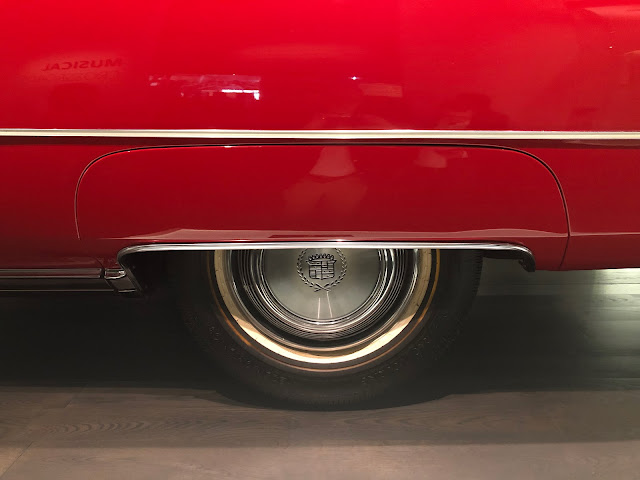Despite the cuts and the drama, Twitter is still the most dynamic network in my social media palette. Facebook smells of mothballs, and is practically the day room in a senior center. Instagram an addictive chain of mesmerizing yet ultimately empty snippets of TV shows and car crashes. Email is clogged with spam and all but useless. Only Twitter can bring you both the news of the day and the doings of your friends.
Twitter even has rare small moments of — dare I say it? — grace. Saturday night, Chicago TikTok historian Shermann Dilla Thomas, whom we met in April taking his bus tour of Bronzeville, tossed out a question to Gov. J.B. Pritzker. Yes, wisenheimers fired off cracks like "Queen Victoria?" (okay, that was me. In my defense, it was a sly historical reference to the fact that, when Chicago burned in in the Great Chicago Fire of 1871, sympathetic English literary lights, including Queen Victoria, donated books to replace the ones that weren't lost in the library we didn't have. The arrival of the donated British books shamed the city into finally establishing a public library. I hadn't realized that the Pritzkers went back that far in Chicago history).
The question alone would have been charming, in "a cat can look at a king" fashion. Then the governor, unperturbed by being addressed as "big homie," actually chimed in, or at least some aide posing as him did, tweeting to Dilla:
I had no idea what the governor was talking about. Cindy Pritzker had a hand in founding the Chicago Public Library? Since when? There is a Cindy Pritzker Auditorium in the Harold Washington Library. But that doesn't reach the level of helping to create the library system, not in the usual sense of the term. It's a room.
After conducting seconds of research online, I realize the true situation. Cindy Pritzker "and a core group of civic leaders" created the Chicago Public Library Foundation, which puts the squeeze on private donors to help fund the Chicago Public Library system.
 |
| Shermann Dilla Thomas |
It's like asking the identity of Spider Man, and someone volunteers the name of their 2-year-old because he's wearing Spider Man underpants.
Now had Dilla asked if the governor — who, I should say, is generally doing a bang-up job keeping Illinois running and preserving it as a human rights sanctuary, secure from the right wing repression deepening in states around us — if he has a relative who helped support the library, I'd have no qualm. But "helped create"? No way. It might seem like a fine point. But details matter, particularly in history. Abraham Lincoln was president during the Civil War, true, but the American Civil War. Not the one in England in the 1640s. There's a difference.
To summarize what we've learned: Cindy Pritzker didn't help create the Chicago Public Library, not being alive at the time. She came along a century afterward, with nameless others, and set up a fundraising arm of the CPL. Her nephew giving her credit for starting the system is like me claiming to have begun Misericordia because I once bought a box of heart-shaped brownies.
And people say history isn't fun!
Honestly, the governor's misunderstanding (or deception) makes this even more of an archetypical Twitter moment. A heart-warming exchange between a sincere ComEd worker turned history maven with the governor of Illinois that also happens to be factually incorrect.
Honestly, the governor's misunderstanding (or deception) makes this even more of an archetypical Twitter moment. A heart-warming exchange between a sincere ComEd worker turned history maven with the governor of Illinois that also happens to be factually incorrect.
Later, I asked Dilla — on Twitter, the easiest way to do these things — why he had asked the governor about the library in the first place. He replied, "I plan to do a 150th anniversary thing for CPL and was just checking facts I had heard." He'll do well to keep in mind that "facts" and "Twitter" are not natural bedfellows. Particularly when it comes to the claims of politicians — or, I imagine, the claims of their 28-year-old social media staffers who don't intuitively understand the difference between a system and a foundation. Let's leave self-aggrandizing untruths to the Republicans.











